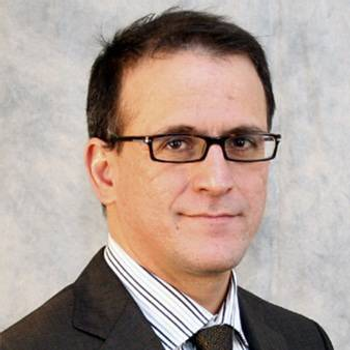Brain Stem Cancer Overview
Learn About Brain Stem Cancer
Duke Cancer Center Brain Tumor Clinic
Allan Friedman is a Neurosurgery provider in Durham, North Carolina. Dr. Friedman is rated as a Distinguished provider by MediFind in the treatment of Brain Stem Cancer. His top areas of expertise are Glioma, Astrocytoma, Glioblastoma, Awake Craniotomy, and Laminectomy. Dr. Friedman is currently accepting new patients.
Advocate Medical Group Neurosurgery
Juan Tejada is a Neurosurgery provider in Libertyville, Illinois. Dr. Tejada is rated as a Distinguished provider by MediFind in the treatment of Brain Stem Cancer. His top areas of expertise are Posterior Fossa Tumor, Primitive Neuroectodermal Tumor (PNET), Apoplexy, Awake Craniotomy, and Microdiscectomy.
Maryam Fouladi is a Pediatric Hematologist Oncology provider in Mansfield, Ohio. Dr. Fouladi is rated as an Elite provider by MediFind in the treatment of Brain Stem Cancer. Her top areas of expertise are Diffuse Midline Glioma H3 K27M-Mutant, Glioma, Medulloblastoma, and Brain Stem Cancer.
Summary: This is a Phase 1 study of central nervous system (CNS) locoregional adoptive therapy with autologous CD4+ and CD8+ T cells lentivirally transduced to express a B7H3-specific chimeric antigen receptor (CAR) and EGFRt. CAR T cells are delivered via an indwelling catheter into the tumor resection cavity or ventricular system in children and young adults with diffuse intrinsic pontine glioma (DIPG), ...
Summary: This phase I/II trial evaluates the best dose, side effects and possible benefit of CBL0137 in treating patients with solid tumors, including central nervous system (CNS) tumors or lymphoma that has come back (relapsed) or does not respond to treatment (refractory). Drugs, such as CBL0137, block signals passed from one molecule to another inside a cell. Blocking these signals can affect many funct...

Keep Punching supports patients, healthcare providers, and researchers in their fight to prevent and eradicate brain cancer and minimize treatment-related side effects that may adversely impact function and comfort.

